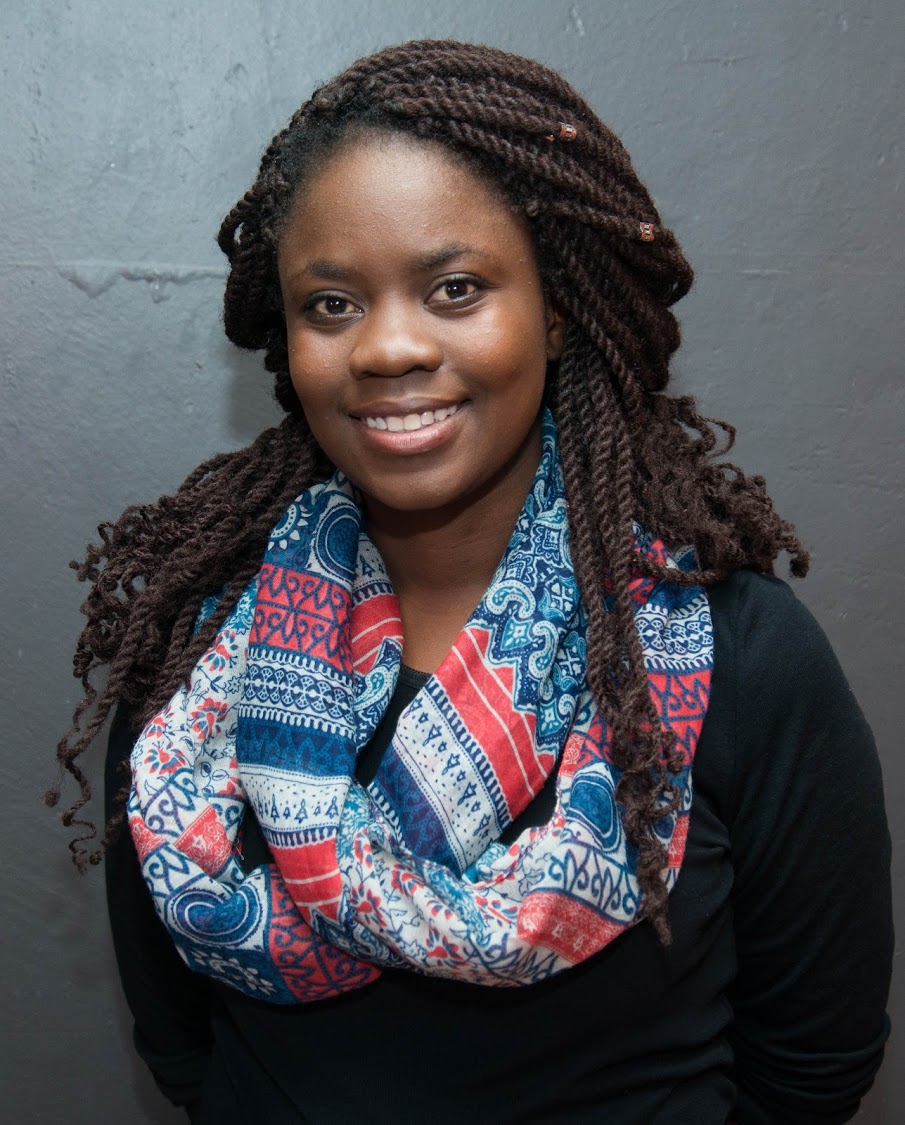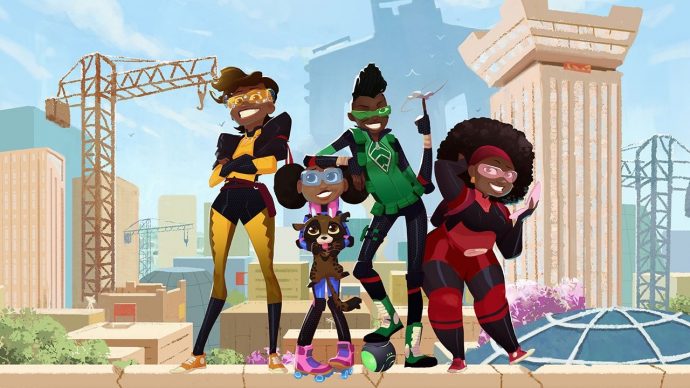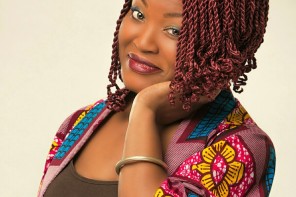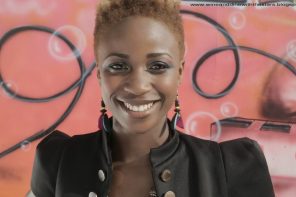Written by the 24-year-old Zambian writer Malenga Mulendema, designed by the Cameroonian artist Malcolm Wope and produced by the award-winning South Africa based studio, Triggerfish Animation, in partnership with the London based kids and family entertainment specialist, CAKE, the animation series Mama K’s Team 4 will soon be gracing our screens exclusively on Netflix.
“I want to illustrate that anyone from anywhere can be a superhero” said Mulendema. The animation series Mama K’s Team 4 explores the lives of four teenage girls, dressed in 90’s R&B and hip-hop girl bands inspired outfits. These young female superheroes living in a futuristic version of Lusaka, Zambia are recruited by an ex-secret agent called Mama K, to save the world. The young writer disclosed in the Netflix’s statement that through her work she hopes to introduce the world to four strong African girls who have set out to impact their community in a very unique and fun way. Being a young woman born in the 90’s, living in Africa and with a great love for cartoons as a child, the entire concept and plot of Mama K’s Team 4 couldn’t be clearer. “Now like never before, it is so important to have strong female lead characters who are emotionally connected to their world and who can choose to change their world. So to me, selecting an all-female writing team was a natural fit, because who better to create and connect to those characters than females themselves?” she stated. Besides that, growing up just like any other child in Africa, she noticed that acute lack of proper representation in the storytelling and animation industry. This poor representation lives most African children in a dilemma as they struggle to connect with characters and storylines that have literally no connection to them or their culture. “But regardless of whether it was scheduled on hour of cartoons on the local broadcaster or multiple hours, later on international channels, representational characters were very few and far between, “she reiterated.
Find out how others are telling superhero stories the African way

Most of the time when people talk about representation, they tend to limit it to race and gender which still creates room for bias and exclusion. Ghanaian Farida Bedwei is the creator of Karmzah – the first superhero with cerebral palsy. Growing up as a child she loved reading about superheroes, but she never had the opportunity to see a superhero who looked like her, a young girl with cerebral palsy using a wheelchair. “Representation matters. I think that by changing the thinking of the next generation we can gradually make cerebral palsy or other disabilities for that matter, seem normal to society,” stated Bedwei. In her interview with BBC Africa, she clearly stated that situations like these can make you resent the idea of using assistive devices (a catalyst of eventual self-hate). In her adult years, Bedwei decides to take matters into her hands and create a story about Karmzah, a young girl with cerebral palsy, who gets her powers through her crutches. Bedwei believes having a crutch or wheelchair that can fly, will make children not only feel better about themselves, but it will equally encourage them to proudly use any assistive device they have.
Wait a minute, Netflix why the sudden interest?
“Mama K’s Team 4 has the potential to give a whole new generation of African children the opportunity to see themselves on-screen in the powerful, aspiration characters they look up to,” reveals Melissa Cobb, vice president of original animation at Netflix. Not very long ago it was the movie Lionheart by the Nollywood actress, director and producer Genevieve Nnaji and now Mama K’s Team 4 by Malenga Mulendema! Most Africans are definitely taken aback. But Netflix’s African love story is not as recent as it may seem. It dates back to 2015 according to a CNN report.
Back in 2015 the entertainment mogul paid 12 million Dollars for the worldwide distribution rights of ‘Beast of no Nation,’ starring award-winning actor, Idris Elba, as a war general leading a group of child soldiers in a West African country. Lionheart, from Nollywood was up next. It is also reported that Netflix acquired the rights to include the Nigerian film known as “Chief Daddy” to its platform in March this year. In a bid to further position itself in Africa, Netflix recently appointed the award-winning Kenyan film producer, Dorothy Ghettuba, as manager for International Orginals. Speaking to CNN, Bankole Oluwafemi, the founder and editor of TechCabal.com, an online publication focused on promoting conversations around technology, mobile & internet in Africa stated: “Netflix acquiring content directly from African producers will give them the budget to market their films to the rest of the world. You have an industry that doesn’t have a lot of money flushing in. But Netflix comes into the African market with a budget that is definitely needed.” The company’s business strategy in Africa is proving quite fruitful. This freshman is already available in all 54 African nations and has round about 150 million subscribers as revealed by the company.
Also read about Africa’s fantasy game – Kiro’o Games
As we wait to see what the future of Netflix on African soil holds, we must however, acknowledge that the journey ahead might not be as easy as it seems. As the saying goes ‘old wine tastes better than new wine’. The South African cable TV provider, Multichoice, still has a very stronghold in 49 African countries through the famous ‘Africa Magic’ channel. No one can tell exactly, how long this old wine will continue to taste in the mouths of Africans, but one thing remains certain, change is the only constant thing and loyalty is royalty.





